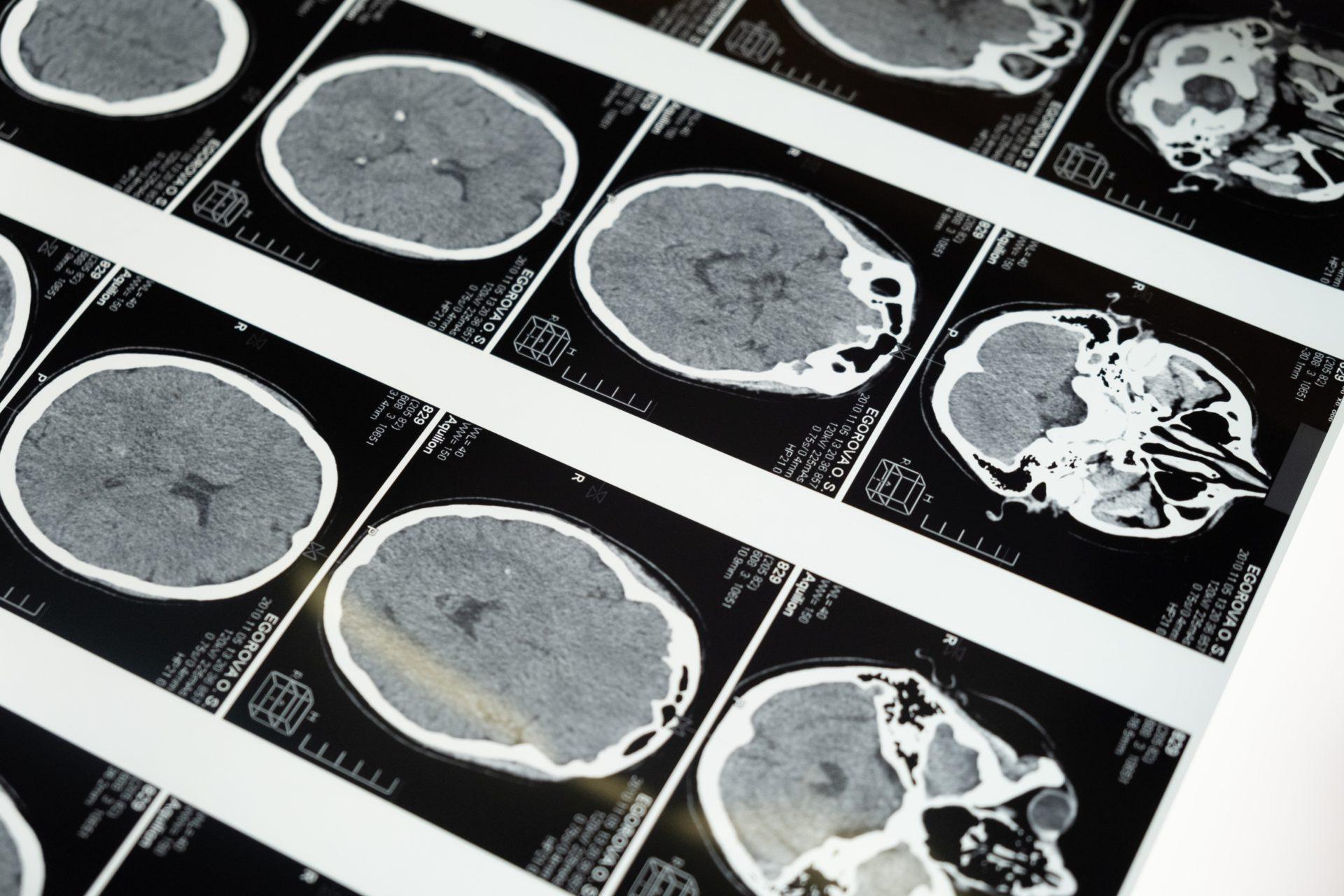In our quest to promote longevity and embrace the journey of aging gracefully, we delve into various aspects of healthy living and holistic well-being. Today, we turn our attention to a fascinating topic that has captured the interest of researchers and health enthusiasts alike: the relationship between dietary restriction, fasting, and lifespan.
Embracing the Power of Dietary Restriction for Healthy Aging
For centuries, fasting has been practiced in different cultures and religious traditions. It involves voluntarily abstaining from food and sometimes even beverages for a specific period. While fasting has often been associated with religious rituals, it has also gained recognition for its potential health benefits, particularly in relation to aging and longevity.
Researchers have conducted numerous studies to understand how dietary restriction, including fasting, can influence our lifespan and overall health. These studies have revealed compelling evidence that caloric restriction, intermittent fasting, and other forms of dietary restriction can extend the lifespan of various organisms, ranging from yeast and worms to fruit flies and mammals.
One notable example is the research conducted on rhesus monkeys at the National Institute on Aging. In this long-term study, monkeys were subjected to a calorie-restricted diet while a control group consumed a standard diet. The results showed that the calorie-restricted monkeys had a significantly lower incidence of age-related diseases, such as diabetes, cancer, and cardiovascular issues, compared to the control group. Additionally, the calorie-restricted monkeys experienced slower aging and increased lifespan compared to their counterparts.
The History of Fasting: From Ancient Traditions to Modern Applications
Fasting is not a new concept. In fact, it has been practiced for centuries in various cultures and religious traditions around the world. From ancient rituals to modern-day applications, fasting has evolved and gained recognition for its potential health benefits, particularly in the realm of healthy aging.
Ancient civilizations, such as the Greeks, Romans, and Egyptians, recognized the transformative power of fasting. They believed that abstaining from food and drink for certain periods could purify the body, restore balance, and promote overall well-being. Fasting was seen as a means to achieve spiritual enlightenment and physical rejuvenation.

Religious practices have also incorporated fasting as a way to demonstrate devotion, discipline, and self-control. Religions like Islam, Christianity, Judaism, and Buddhism have prescribed fasting as a significant part of their religious observances. These fasts may vary in duration and requirements, ranging from complete abstinence to restrictions on specific food groups.
However, fasting is not solely confined to religious contexts. In recent years, there has been a resurgence of interest in fasting as a health and longevity strategy. Scientific research has shed light on the potential benefits of fasting for human health, leading to its adoption in various forms.
Intermittent fasting, for instance, has gained popularity as a flexible approach to fasting. This method involves cycling between periods of eating and fasting, allowing individuals to tailor their fasting schedules to their lifestyle. The 16/8 method, where one restricts their eating window to eight hours and fasts for the remaining 16 hours of the day, is one common form of intermittent fasting.
Another approach is the 5:2 diet, where individuals eat normally for five days a week and reduce their calorie intake to a quarter of their usual consumption for the remaining two days. This method allows for greater dietary flexibility while still reaping the benefits of fasting.
Modern science has delved into the mechanisms behind fasting and its impact on health. Researchers have discovered that during fasting periods, the body undergoes various physiological changes. One such change is the activation of autophagy, a cellular process that clears out damaged components and promotes cellular repair.
Autophagy helps remove dysfunctional proteins, organelles, and toxins, thereby rejuvenating cells and improving their overall function. By stimulating this process, fasting may potentially slow down the aging process and reduce the risk of age-related diseases.
Moreover, fasting has been shown to improve metabolic health markers, including insulin sensitivity, blood sugar control, and cholesterol levels. It can also reduce inflammation in the body, which is a common factor in many chronic conditions. These effects contribute to a lower risk of metabolic disorders, cardiovascular disease, and neurodegenerative conditions.
As we explore the history and evolution of fasting, it becomes evident that this practice has stood the test of time. From ancient traditions rooted in spirituality to modern-day applications grounded in scientific research, fasting continues to capture our attention as a potential tool for promoting healthy aging and longevity.
Exploring the Science Behind Fasting and Longevity
While the exact mechanisms behind the relationship between dietary restriction and longevity are still being unraveled, scientists have proposed several theories. One prevailing hypothesis is that dietary restriction activates certain cellular pathways that enhance cellular repair and stress resistance, ultimately slowing down the aging process. These pathways include autophagy, a process that removes damaged components within cells, and the activation of sirtuins, a family of proteins involved in regulating cellular functions.
In addition to extending lifespan, dietary restriction has been shown to improve various health markers and enhance overall well-being. For example, fasting and caloric restriction have been linked to improved insulin sensitivity, reduced inflammation, enhanced cognitive function, and better cardiovascular health. By embracing dietary restriction, individuals may not only add more years to their lives but also improve the quality of those years.
Different Approaches to Dietary Restriction: Finding What Works for You
Intermittent fasting, for instance, has gained significant popularity in recent years. This approach involves cycling between periods of eating and fasting, with various schedules to choose from. One common method is the 16/8 fasting, where you restrict your eating window to eight hours and fast for the remaining 16 hours of the day. Another popular approach is the 5:2 diet, where you eat normally for five days a week and reduce your calorie intake to a quarter of your usual intake for the remaining two days.
Another form of dietary restriction that has shown promising results is caloric restriction. This approach involves reducing your daily calorie intake, typically by around 20-30% of your usual consumption. Although caloric restriction may seem daunting at first, it’s worth exploring the potential benefits it can offer for healthy aging.
Debunking Common Myths and Misconceptions about Dietary Restriction
While fasting can be an effective tool for promoting longevity and better health, it’s crucial to debunk some common myths and misconceptions associated with dietary restriction. One prevalent myth is that fasting leads to muscle loss. However, research suggests that properly executed fasting regimens can actually preserve lean muscle mass while promoting fat loss.
Another misconception is that fasting causes a decrease in metabolism. On the contrary, studies indicate that short-term fasting can boost metabolism by enhancing mitochondrial function and promoting cellular repair. It’s important to distinguish between short-term fasting and long-term caloric deprivation, as the latter may lead to metabolic adaptations.

As we delve deeper into the specific health benefits of dietary restriction and fasting, it becomes clear that these practices have a profound impact on various aspects of senior health. Let’s explore some of these benefits in more detail.
The Impact of Fasting on Insulin Sensitivity and Metabolic Health
Insulin sensitivity plays a crucial role in maintaining balanced blood sugar levels and preventing the onset of metabolic disorders such as type 2 diabetes. Fasting has been shown to improve insulin sensitivity, allowing your body to use glucose more effectively and reducing the risk of insulin resistance.
The Influence of Fasting on Insulin Sensitivity
Insulin sensitivity, the body’s ability to effectively respond to and utilize insulin, is a crucial factor in maintaining metabolic health. Impaired insulin sensitivity can lead to insulin resistance, which is associated with various metabolic disorders such as type 2 diabetes and obesity. Fortunately, fasting has been shown to have a positive impact on insulin sensitivity.
During fasting periods, when glucose intake is limited, the body taps into its stored energy reserves, primarily in the form of glycogen stored in the liver and muscles. As glycogen levels decrease, the body switches to utilizing stored fats as an energy source. This metabolic shift promotes improved insulin sensitivity, as the body becomes more efficient at using insulin to transport glucose into cells.
Research suggests that intermittent fasting, in particular, can have a profound impact on insulin sensitivity. By cycling between periods of fasting and eating, intermittent fasting promotes metabolic flexibility and enhances the body’s response to insulin. This can lead to improved blood sugar control, reduced insulin levels, and a decreased risk of developing insulin resistance.
Furthermore, fasting has been shown to decrease markers of inflammation in the body, such as C-reactive protein (CRP) and interleukin-6 (IL-6). Chronic inflammation is closely linked to insulin resistance and metabolic dysfunction. By reducing inflammation, fasting can help mitigate the underlying factors contributing to impaired insulin sensitivity.
Fasting and Metabolic Health: Beyond Insulin Sensitivity
While the impact of fasting on insulin sensitivity is significant, its effects on metabolic health extend beyond glucose regulation. Fasting has been associated with a range of metabolic benefits that contribute to overall well-being.
One notable benefit is improved lipid profile. Studies have shown that fasting can lead to a reduction in triglyceride levels and an increase in high-density lipoprotein (HDL) cholesterol, often referred to as “good” cholesterol. These changes in lipid markers can improve cardiovascular health and reduce the risk of heart disease.
Fasting has also been found to enhance mitochondrial function, the energy powerhouses of our cells. Fasting triggers cellular adaptations that optimize mitochondrial efficiency and promote their ability to generate energy. This improvement in mitochondrial function can contribute to increased energy levels and overall metabolic resilience.

In addition, fasting has been associated with weight loss and improved body composition. By creating a calorie deficit during fasting periods, the body taps into stored fat for energy, leading to fat loss. Combined with the metabolic benefits mentioned earlier, fasting can support healthy weight management and promote a more favorable body composition.
It’s important to note that the specific effects of fasting on insulin sensitivity and metabolic health may vary among individuals. Factors such as underlying health conditions, medication use, and lifestyle factors can influence the outcomes. Therefore, it’s advisable to consult with a healthcare professional or a registered dietitian before incorporating fasting into your routine, especially if you have any pre-existing metabolic conditions.
Section Heading: Fasting and Gut Health: The Impact on Digestion and Microbiome
Our digestive system plays a crucial role in maintaining overall health and well-being. It is responsible for breaking down food, absorbing nutrients, and eliminating waste. But did you know that fasting can have a significant impact on gut health and the intricate ecosystem of microorganisms residing within our digestive tract, known as the microbiome?
When we fast, our digestive system gets a break from constant food processing. This break allows the gut to focus on other essential functions, such as repairing damaged tissues and eliminating toxins. Additionally, fasting can positively influence the composition and diversity of the gut microbiome, which plays a vital role in our overall health.
The gut microbiome consists of trillions of microorganisms, including bacteria, viruses, fungi, and other microbes. These microorganisms work in symbiosis with our body, aiding in digestion, nutrient absorption, immune function, and even mental health. Maintaining a healthy and diverse microbiome is crucial for optimal gut function and overall well-being.
Research suggests that fasting can promote a favorable balance of gut bacteria, leading to a healthier microbiome. During fasting periods, the absence of food allows the gut to rebalance and regulate the populations of different microbial species. This rebalancing can help restore a more diverse and beneficial microbial community.
Moreover, fasting has been shown to reduce the growth of potentially harmful bacteria in the gut. Certain studies have found that fasting can inhibit the growth of pathogenic bacteria while promoting the growth of beneficial bacteria. This shift in microbial composition can contribute to improved gut health and a reduced risk of digestive disorders.

Fasting may also enhance gut barrier function, which acts as a protective barrier to prevent harmful substances from entering the bloodstream. Studies have demonstrated that fasting can strengthen the integrity of the gut lining, reducing the risk of leaky gut syndrome and associated inflammatory responses.
Additionally, fasting has been linked to improvements in gut motility, the movement of food through the digestive tract. This can help alleviate symptoms of conditions such as constipation and promote regular bowel movements.
It’s important to note that the impact of fasting on gut health is influenced by various factors, including the duration and type of fasting, individual differences, and pre-existing gut conditions. Therefore, it’s essential to approach fasting with an awareness of your specific health needs and consult with a healthcare professional if you have any concerns.
To optimize gut health during fasting, it’s crucial to prioritize hydration and nourishment during eating periods. Consuming fiber-rich foods, fermented foods, and prebiotic-rich foods can support a healthy gut microbiome. These dietary choices can provide essential nutrients for gut bacteria and help maintain a diverse and thriving microbial community.
Cognitive Benefits of Fasting: Enhancing Brain Function as You Age
As we age, cognitive decline becomes a common concern. However, fasting has shown promising results in enhancing brain function and protecting against neurodegenerative diseases. Studies suggest that fasting triggers various cellular mechanisms that promote the growth of new neurons and protect existing brain cells. By embracing fasting, you can potentially improve memory, concentration, and overall cognitive performance, contributing to a higher quality of life as you age.
Fasting and Cardiovascular Health: Protecting Your Heart for the Long Run
Maintaining cardiovascular health is crucial for healthy aging and longevity. Heart disease, including conditions like coronary artery disease, high blood pressure, and stroke, remains a leading cause of mortality worldwide. However, emerging research suggests that fasting can play a significant role in promoting cardiovascular health and protecting the heart for the long run.
One of the primary ways fasting benefits cardiovascular health is by promoting weight loss and improving body composition. Excess weight, especially abdominal fat, is a risk factor for cardiovascular disease. Fasting, through its calorie-restriction effects, can contribute to weight loss, reduce body fat, and improve metabolic markers associated with cardiovascular risk, such as blood pressure, cholesterol levels, and triglycerides.
Furthermore, fasting promotes beneficial changes in lipid profiles, another significant factor in cardiovascular health. Studies have demonstrated that fasting can lead to decreased levels of triglycerides and low-density lipoprotein (LDL) cholesterol, commonly known as “bad” cholesterol. At the same time, fasting can increase levels of high-density lipoprotein (HDL) cholesterol, often referred to as “good” cholesterol. These improvements contribute to a more favorable lipid profile and a reduced risk of atherosclerosis and heart disease.
Beyond these metabolic benefits, fasting has been found to positively impact other cardiovascular parameters. For example, fasting has shown to reduce blood pressure, a major risk factor for cardiovascular events. Lowering blood pressure helps alleviate the strain on the heart and blood vessels, promoting optimal cardiovascular function.
Fasting also stimulates autophagy, a cellular process that removes damaged proteins and organelles. By clearing out these cellular waste products, autophagy supports heart health by reducing oxidative stress and preventing the accumulation of harmful substances that could impair cardiac function.
Furthermore, fasting has been associated with a reduction in systemic inflammation (more below), which is closely linked to the development and progression of cardiovascular disease. By reducing chronic inflammation, fasting contributes to the preservation of blood vessel health and reduces the risk of atherosclerosis.
It is important to note that while fasting shows promise in promoting cardiovascular health, individual variations and underlying medical conditions must be taken into account. Those with pre-existing cardiovascular conditions, such as heart failure or arrhythmias, should consult with a healthcare professional to determine the appropriateness and safety of fasting.
Incorporating a heart-healthy diet during non-fasting periods can further support cardiovascular health. This includes consuming a variety of nutrient-dense foods such as fruits, vegetables, whole grains, lean proteins, and healthy fats, while minimizing the intake of processed foods, saturated fats, and added sugars.
Fasting and Inflammation: Reducing Chronic Inflammatory Markers
Chronic inflammation is a common underlying factor in various age-related diseases, including cardiovascular disease, arthritis, neurodegenerative disorders, and certain types of cancer. It is a persistent, low-grade inflammatory state that can significantly impact our health and well-being. Fortunately, fasting has shown promise in reducing chronic inflammatory markers and promoting a healthier inflammatory response.
When we fast, especially during prolonged fasting periods, the body undergoes several beneficial changes that contribute to the reduction of chronic inflammation. Firstly, fasting can reduce oxidative stress, which is a major contributor to inflammation. By limiting the intake of food and reducing the production of reactive oxygen species, fasting helps to rebalance the body’s antioxidant defenses and minimize oxidative damage.

Moreover, fasting triggers the activation of various cellular pathways that regulate inflammation, such as the NF-κB pathway. This pathway plays a key role in initiating the inflammatory response. Studies have shown that fasting can inhibit the activation of NF-κB, leading to a decreased production of pro-inflammatory molecules.
Additionally, fasting promotes autophagy, the cellular process of self-digestion and recycling of damaged cellular components. Autophagy helps eliminate dysfunctional proteins and organelles, reducing the release of pro-inflammatory signals and dampening chronic inflammation.
Intermittent fasting, in particular, has been shown to have anti-inflammatory effects. In a study involving individuals with obesity, intermittent fasting was found to significantly reduce inflammatory markers such as C-reactive protein (CRP) and interleukin-6 (IL-6). These findings suggest that intermittent fasting has the potential to mitigate systemic inflammation and improve overall health.
By reducing chronic inflammation, fasting may contribute to the prevention and management of various inflammatory conditions. However, it’s important to note that the effects of fasting on inflammation may vary among individuals, and more research is needed to fully understand the mechanisms and long-term implications.
Incorporating anti-inflammatory foods into the diet during non-fasting periods can complement the benefits of fasting. Consuming a variety of fruits, vegetables, whole grains, nuts, and fatty fish rich in omega-3 fatty acids can provide essential nutrients and phytochemicals with anti-inflammatory properties.
It is worth mentioning that fasting should be approached with caution in individuals with certain medical conditions or on specific medications. If you have a pre-existing inflammatory condition or are unsure about the suitability of fasting for your situation, it’s advisable to consult with a healthcare professional to ensure its safety and effectiveness.
Fasting and Cellular Repair: Boosting Regeneration and Slowing Aging
One of the remarkable effects of fasting is its ability to promote cellular repair and regeneration. During fasting periods, your body activates autophagy, a cellular process that removes damaged components and recycles them for energy. This process helps eliminate toxins and damaged cells, promoting tissue repair and slowing down the aging process. By incorporating fasting into your lifestyle, you can potentially enhance cellular health and rejuvenate your body from within.
Fasting and Lifespan: Dietary Restriction for Your Holistic Well-Being
In conclusion, fasting unveils a fascinating relationship between dietary restriction and healthy aging. Throughout history, fasting has been practiced for spiritual and cultural purposes, but its benefits extend far beyond tradition. Modern scientific research has shed light on the remarkable impact of fasting on longevity, overall health, and well-being.
By embracing the power of dietary restriction, we have the potential to unlock a myriad of benefits. Fasting has been shown to extend lifespan, enhance cellular repair mechanisms, and promote the regeneration of tissues. It can improve insulin sensitivity, optimize metabolic health, and support weight management. Fasting even influences our gut health, positively impacting the gut microbiome and promoting optimal digestion.
Understanding the different types of fasting and finding what works best for our individual needs and preferences is key. Whether through intermittent fasting, caloric restriction, or other variations, there are numerous approaches to incorporate fasting into our lifestyles. It is essential to approach fasting mindfully, considering our unique circumstances and consulting with healthcare professionals when necessary.
As we journey towards healthy aging, it’s important to recognize that fasting is just one piece of the puzzle. It should be complemented by a holistic approach to well-being, which includes a balanced diet, regular physical activity, stress management, and nurturing social connections. Together, these elements form the foundation of a fulfilling and vibrant life.
Also consider: Increasing Lifespan: Simple Actions for Longevity and Well-Being
Disclaimer: The information provided in this blog post is for educational purposes only and should not be considered as medical advice. Consult with your healthcare professional for personalized guidance and recommendations regarding your specific health needs and conditions.





